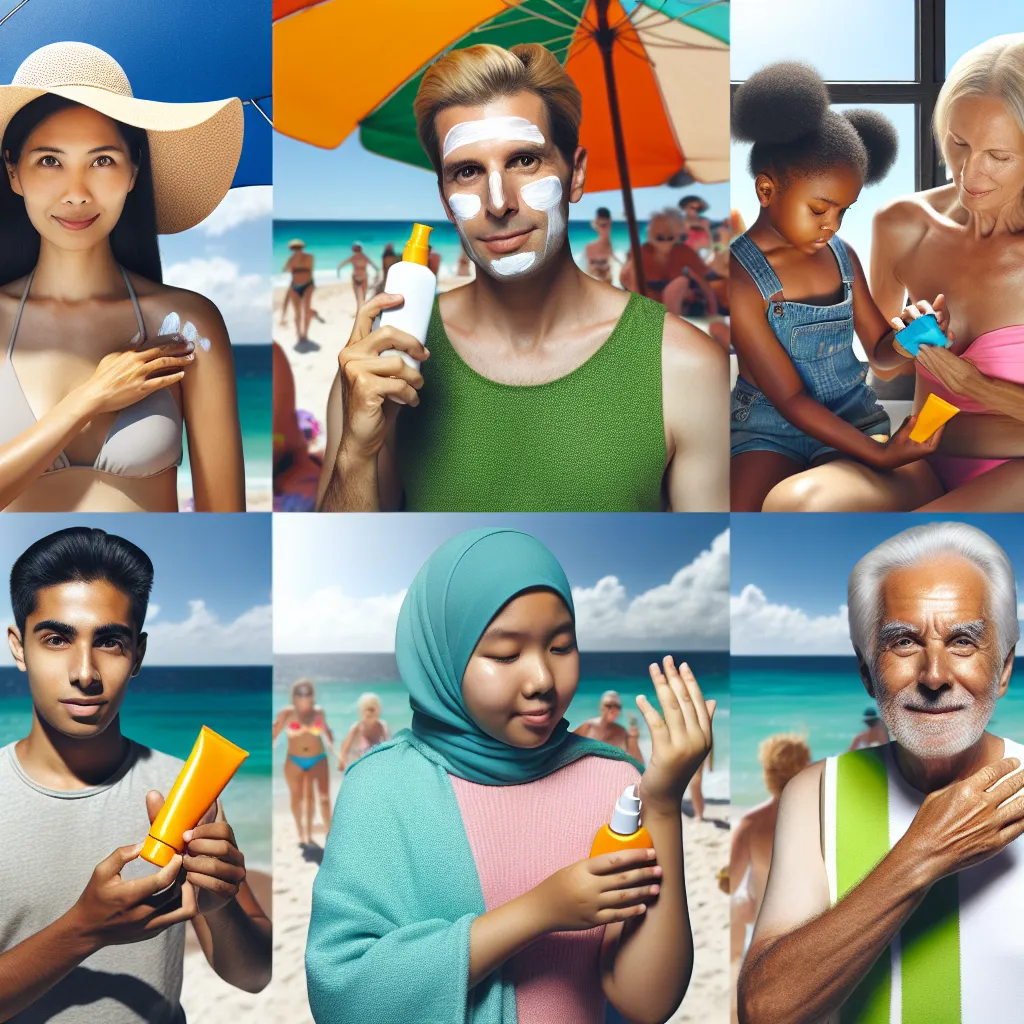
The Importance of Sunscreen in Skin Protection
Understanding UV Radiation and Skin Damage
Understanding UV radiation and its effects on the skin is crucial in emphasizing the importance of sunscreen as a protective measure. UV radiation is a form of energy emitted by the sun that reaches the Earth’s surface. There are three types of UV radiation: UVA, UVB, and UVC. UVA and UVB are the two main types that penetrate the Earth’s atmosphere and affect the skin.
UVA rays have a longer wavelength and can penetrate deep into the skin, causing premature aging, wrinkles, and contributing to the development of skin cancer. On the other hand, UVB rays have a shorter wavelength and primarily affect the outer layer of the skin, causing sunburn and playing a key role in the development of skin cancer.
Prolonged exposure to UV radiation without protection can result in various forms of skin damage, including sunburn, photoaging, pigmentation disorders, and an increased risk of skin cancer. This makes the application of sunscreen, which can help to block or absorb UV radiation, essential for maintaining skin health.
By understanding the harmful effects of UV radiation, individuals can make informed decisions about sun protection, including the regular use of broad-spectrum sunscreen with a high SPF rating, seeking shade during peak sun hours, and wearing protective clothing. Ultimately, prioritizing sun protection through the use of sunscreen can significantly reduce the risk of skin damage and contribute to long-term skin health.
Choosing the Right Sunscreen for Your Skin
When it comes to protecting your skin from the harmful effects of the sun, choosing the right sunscreen is crucial. With so many options available, it’s important to understand the key factors to consider when selecting a sunscreen that best suits your skin’s needs.
The first thing to consider is the Sun Protection Factor (SPF) of the sunscreen. SPF measures the level of protection against UVB rays, which are the primary cause of sunburn and skin cancer. Dermatologists recommend using a broad-spectrum sunscreen with an SPF of 30 or higher, as this provides effective protection against both UVA and UVB rays.
Another important consideration is your skin type. Individuals with oily or acne-prone skin should opt for oil-free or non-comedogenic sunscreens to prevent clogged pores and breakouts. For those with sensitive skin, it’s best to choose a sunscreen with physical blockers like zinc oxide or titanium dioxide, as these are less likely to cause irritation.
Furthermore, water-resistant sunscreen is essential, especially if you’ll be swimming or sweating. Look for sunscreens labeled “water-resistant” with a specific duration (typically 40 or 80 minutes) to ensure continued protection during outdoor activities.
Lastly, consider the formulation of the sunscreen. Lotions are suitable for dry skin, gels work well for hairy areas and for individuals with oily skin, while sprays are convenient for reapplying over makeup. Regardless of the formulation, be sure to apply an adequate amount of sunscreen and reapply every two hours, or more frequently if swimming or sweating.
By taking these factors into account, you can select a sunscreen that offers optimal protection and suits your skin’s specific needs, helping you enjoy the sun safely while reducing the risk of skin damage and premature aging.
Practical Tips for Sunscreen Application
When it comes to protecting your skin from the sun’s harmful rays, sunscreen is your best defense. However, simply applying sunscreen is not enough. The way you apply sunscreen can significantly impact its effectiveness. Here are some practical tips for sunscreen application to ensure maximum protection:
1. Apply Generously: It’s crucial to apply a sufficient amount of sunscreen to achieve the advertised level of protection. Most people only apply 25-50% of the recommended amount, which reduces the SPF by half. Use at least a shot glass full for your entire body.
2. Reapply Regularly: Sunscreen should be reapplied every two hours, or more often if you are swimming or sweating. Even water-resistant sunscreens can lose their effectiveness after 40 minutes in the water.
3. Know Your SPF: Understand the Sun Protection Factor (SPF) and choose a broad-spectrum sunscreen with at least SPF 30 to protect against both UVA and UVB rays.
4. Don’t Forget Your Lips: Use a lip balm with SPF to protect your lips, which are also susceptible to sun damage.
5. Time It Right: Apply sunscreen 15-30 minutes before going outside to allow it to fully bond with your skin.
6. Cover All Exposed Skin: Remember to apply sunscreen to often overlooked areas, such as the ears, back of the neck, and the tops of your feet.
By following these practical tips, you can ensure that your sunscreen provides the best possible protection against the sun’s harmful effects, helping to keep your skin healthy and radiant.



